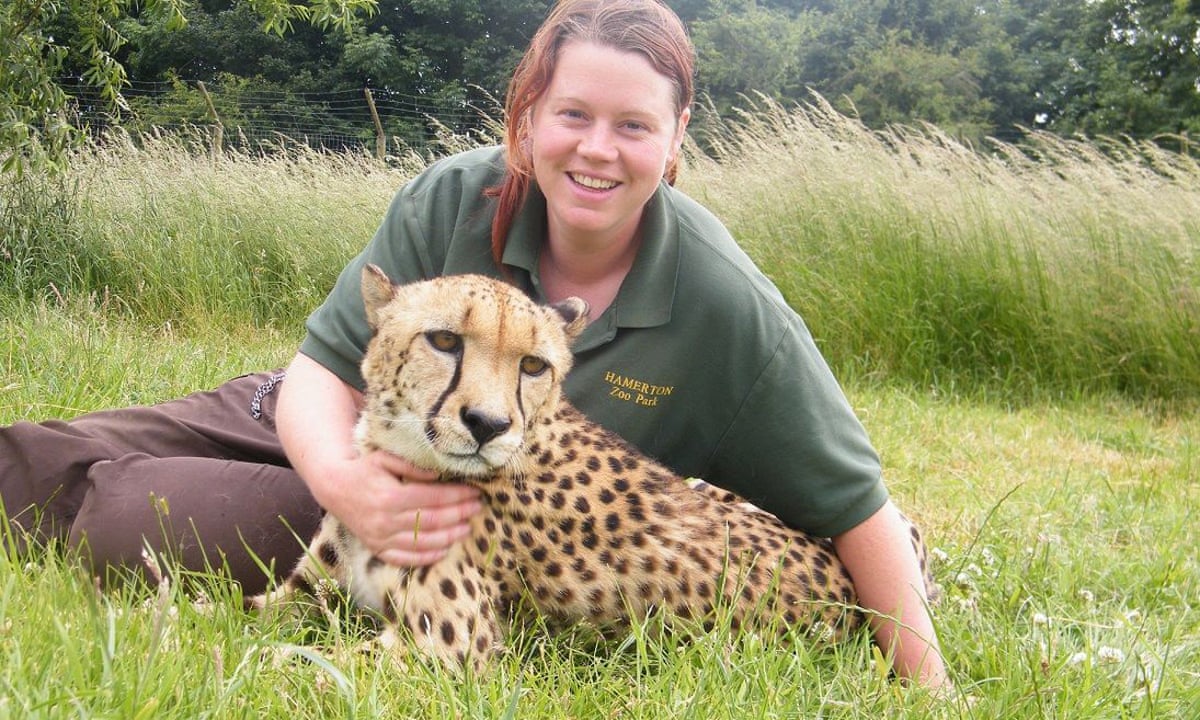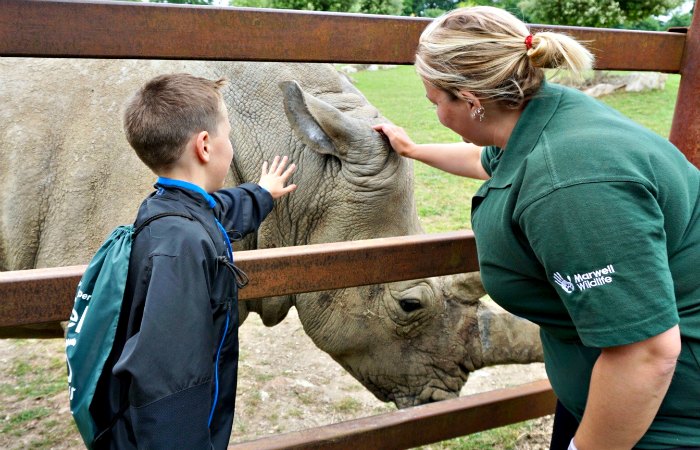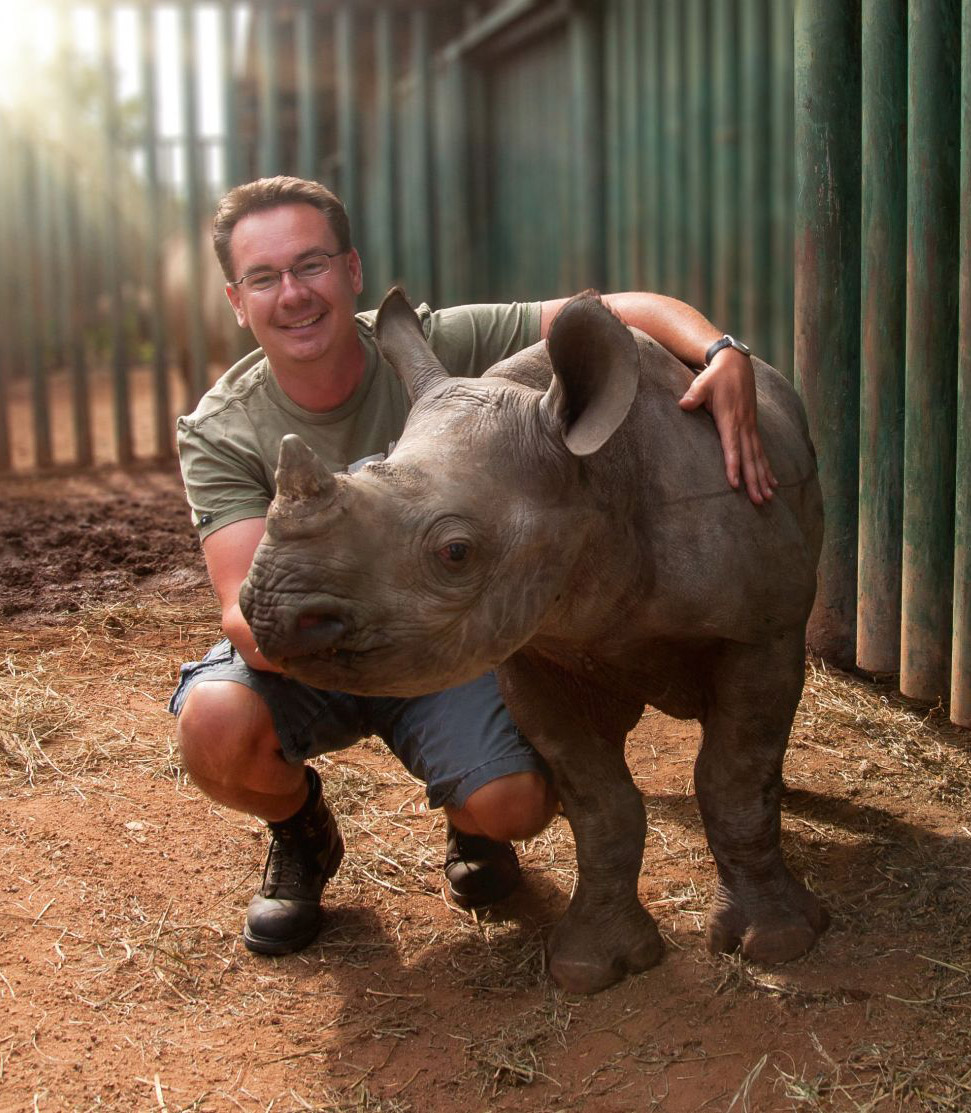1
Introduce Yourself / Podbean
« on: February 05, 2025, 11:47:01 am »
"The achievement of a country and its ethical progress can be judged by the way its animals are dealt with." - Mahatma Gandhi

Do you love animals and imagine operating in a zoo? Zoo keepers are key in protecting wildlife and caring for animals. At places like the Zoological Society of London (ZSL), over 20,000 animals get the care they need from professionals.

To become a zoo keeper, you require effort, education, and a love for animals. This job is amazing, letting you deal with many types and aid with important conservation work. If you're into wildlife or animal welfare, zookeeping might be ideal for you.
Starting your zoo keeper profession implies learning what's needed. This guide will cover education, experience, and more. It's all you need to know to begin a fulfilling zookeeping career.
Understanding the Role of a Zookeeper
Exploring what a zookeeper does exposes a function loaded with difficulties and rewards. They focus on animal welfare and preservation. Zookeepers strive to keep animals healthy and happy in their care.
Daily Responsibilities and Tasks
A zookeeper's day is filled with essential jobs:
Preparing meals that meet each animal's dietary requirements
Cleaning up enclosures to keep them clean and safe
Monitoring animal health and behaviour
Giving medicines and treatments as needed
Producing activities to keep animals mentally sharp
Workplace and Conditions
Zookeepers work outside in all type of weather condition. They handle both indoor and outdoor spaces. The job needs being healthy and able to manage the needs of caring for animals.
"Being a zookeeper is more than a task - it's an enthusiastic commitment to animal care and preservation."
Types of Animals and Specialisations
Zookeepers can specialise in many animal groups:
Primates
Big cats
Marine mammals
Reptiles
Birds
Your function may include working with 2-5 various animal types. This requires a lot of knowledge and the ability to adapt.
Important Skills and Personal Qualities for Zoo Keeping
To be a leading zookeeper, you require more than simply a love for animals. Your job will be difficult and require you to deal with animals and individuals well. You'll likewise need to comprehend animal behaviour.
What zoos look for in individuals includes:
Exceptional perseverance and psychological durability
Strong physical conditioning and endurance
Keen observation abilities
Ability to stay calm under pressure
High level of compassion towards animals
Getting hands-on experience is key to mastering this role. You'll need to reveal:
Advanced understanding of animal care techniques
Proficiency in animal handling and safety procedures
Effective interaction with both animals and human visitors
"A fantastic zookeeper links science, empathy, and preservation in every interaction with animals."
You need to understand about animal nutrition, behaviour, and basic vet care. A lot of zookeepers learn through training, offering, and continuous learning.
Zookeeper work is not simply a job. It's a big commitment to teaching about wildlife and assisting preservation. Your enthusiasm and hard work will make you stand apart in this satisfying career.
How to Become a Zoo Keeper
Starting a career as a zookeeper requires mindful preparation and education. You need to first comprehend the academic requirements and training paths. These will turn your love for animals into a job.
Educational Requirements
To be a fantastic zookeeper, you need a strong academic base. A lot of tasks look for certain certifications:
At least 5 GCSEs at grade 4 or above, consisting of English, maths, and science
A levels or college qualifications
A college degree in biology or animal science
Level 3 Diploma in Animal Management
Essential Certifications
Getting special accreditations can actually assist you in your zookeeper profession. Crucial ones include:
Diploma in Management of Zoo and Aquarium Animals (DMZAA)
Zookeeping Level 3 Diploma (RQF)
Animal managing certificates
Emergency treatment certifications
Training Programs and Apprenticeships
Getting hands-on experience is key in zookeeper training. Many locations provide terrific chances:
Unpaid apprenticeships at wildlife parks
Internship programmes at well-known zoos
Practical training at locations like Colchester Zoo and Dartmoor Zoo
Offering to get real-world skills
Pro pointer: Create an in-depth portfolio to show your animal care abilities. It will assist you in job applications.
Building Relevant Experience in Animal Care
Acquiring hands-on experience is crucial for those wishing to be zookeepers. The job is very competitive. So, it's important to begin building a strong base in animal care.
Your journey starts with discovering ways to work directly with animals. This is a strategic step.
"Experience is the best instructor in animal care" - Wildlife Conservation Experts
Here are effective methods to acquire experience dealing with animals:
Volunteer at local animal shelters to develop fundamental animal managing skills
Seek internships at wildlife rehab centres
Check out part-time positions at veterinary clinics
Contact your local zoo for possible volunteer chances
Volunteering is a fantastic way to discover animal behaviour and care. Many zoos and animal shelters are looking for people who want to learn. These locations offer terrific possibilities to get hands-on experience and show your dedication to animal welfare.
Here are some ideas to take advantage of your experience:
Keep a record of your abilities and interactions
Connect with specialists in animal care
Request referrals and letters of recommendation
Stay consistent and reveal your true passion
Remember, useful experience makes you stand apart in the zookeeping world. Every time you deal with animals, zookeeper you discover more. This increases your possibilities of getting a job in animal care.
Career Pathways and Professional Development
Starting a career as a zookeeper is interesting. It offers lots of opportunities to grow and specialise. Your journey starts with comprehending the different courses in this field.
Entry-Level Positions
Entry-level tasks in zookeeping are a great start. They give you hands-on experience. Zoos look for prospects with:
Level 2 Diploma in Animal Care (minimum qualification)
GCSEs in English and a clinical subject
Volunteer experience at animal shelters or farms
Profession Progression Opportunities
As you acquire experience, your profession can grow. You can move up to:
Junior Keeper
Senior Keeper
Group Leader
Professional Roles
"Continuous learning and useful experience are crucial to advancing in your zookeeping profession."
Specialised Roles
You can likewise select unique areas like:
Conservation breeding programmes
Animal training
Wildlife research study
Educational outreach
About 25% of zookeepers get advanced degrees in zoology or animal conservation. Getting Level 4 certifications can boost your possibilities for senior functions and research.

Working Hours and Physical Demands
Becoming a zookeeper means you'll work more than simply regular hours. You'll face hard physical obstacles and need to be versatile, consisting of weekends and holidays. Zoos are open every day, so you'll often work when others relax.
"Zoo keeping is not a common 9-to-5 job-- it's a way of life of devoted animal care and commitment."
This job is physically demanding. You'll work outside in any weather condition, lifting heavy items over 50 pounds. Your tasks may include:
Early morning feeding schedules
Cleaning up animal enclosures
Preparing specialised diets
Carrying out medical examination
Preserving complex habitats
Shifts can begin as early as 5 AM and go late into the night. You'll be on your feet the majority of the time, moving in between animal zones. Weekends and holidays become part of the job, needing great deals of endurance and commitment.
Despite the obstacles, this task has excellent rewards. You'll grow strong, both physically and emotionally. You'll likewise make incredible connections with amazing animals.
Health and Safety Considerations
Being a zookeeper features its own set of obstacles. It's essential to understand how to keep both animals and personnel safe. This indicates following strict health and safety guidelines.
Zookeepers face a special environment where safety is essential. Studies show that health and safety are now as important as the zoo's main work.

Danger Management Strategies
There are several ways to manage threats in zoos:
Daily checks of animal enclosures for dangers
Counting animals at the start and end of shifts
Enjoying how visitors act near animals
Being ready for emergency situations
Animal Handling Safety Protocols
Knowing which animals are most dangerous is essential. Big animals like rhinos can be really dangerous. There have been cases where zookeepers got seriously harmed.
Security isn't almost wearing gear - it's about knowing animal behaviour and staying alert.
Personal Protective Equipment
Zookeepers require to wear the ideal equipment, including:
Special gloves for dealing with animals
Strong shoes for grip and security
Clothes that safeguards against bacteria
Getting vaccinated against illness like hepatitis B and rabies is likewise essential. It helps keep zookeepers healthy in their tough job.
Salary Expectations and Job Market
Considering a career in zoo keeping? It's important to know about incomes and the job market. The field is growing, with more chances in the UK.
Let's look at what zoo keepers can earn at various phases:
Entry-level zookeepers start at about ₤ 14,000 a year
Certified ones make in between ₤ 16,000 and ₤ 22,000
Senior zookeepers can earn up to ₤ 30,000 or more
The job outlook for zoo keepers is great. The sector is anticipated to grow by 5% in the UK by 2029. This indicates around 3,910 brand-new jobs will be available.
"The Association of Zoos and Aquariums supports expert growth for zoo keepers," a report says.
Salaries vary based upon several things:
Experience level
Specialisation
Where you work
The zoo's size and type
While the pay might not be high, the happiness of working with animals is priceless. The average salary is around ₤ 17,000. But, total incomes can be between ₤ 13,000 and ₤ 27,000 a year.
Conclusion
Starting a career in animal care is an exciting journey. It needs devotion, passion, and a love for knowing. With over 350 zoos and wildlife locations in the UK, there are numerous job opportunities. You'll get to deal with incredible animals and assist protect wildlife.
To be a zoo keeper, you need more than just love for animals. You should have a mutual understanding of biology, be able to communicate well, and always want to discover more. You'll gain hands-on experience, learn more about animal welfare, and establish a deep respect for nature. About 3,000 individuals in the UK have found satisfying professions in this field.

Your success in zoo keeping originates from blending science with a love for animals. Whether you're interested in mammals, birds, or marine life, this job lets you help with preservation. Every day will bring new challenges and zookeeper learning opportunities that will enhance your skills and knowledge.
If you love animals and want to help safeguard wildlife, zoo keeping might be for you. Take on the challenge, stay curious, and turn your enthusiasm for animals into a fulfilling profession.

